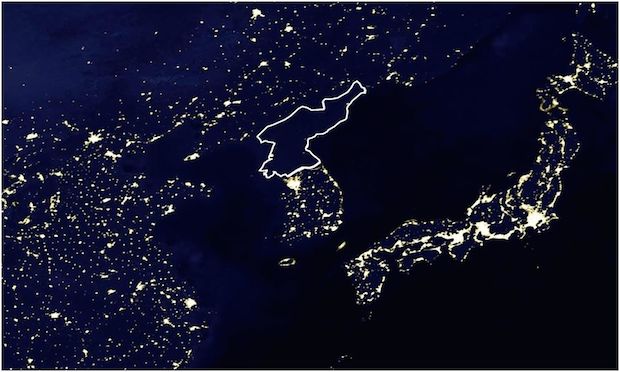The Ongoing Cruelty of ‘Maximum Pressure’

Sanctions on North Korea have been harming the civilian population, and that harm has intensified over the last three years of the “maximum pressure” campaign. A new study concludes that sanctions are responsible for directly contributing to almost 4,000 avoidable deaths in 2018 alone:
The authors of the new assessment say the existence of those sanctions, the difficulty of securing exemptions for humanitarian assistance, and the reluctance of financial institutions to participate in projects involving North Korea, have combined to create “unintended adverse humanitarian consequences,” from diminished agricultural production to medical shortages and lack of access to clean water.
Inability to access humanitarian assistance due to sanctions has caused “irreparable damage,” according to the report, which estimates that more than 3,968 people died in 2018—3,193 children under five and 72 pregnant women among them—“as a result of sanctions-related delays and funding shortfalls” that impact U.N. programs, especially those dealing with acute malnutrition; vitamin A deficiency; water, sanitation and hygiene issues; and the need for emergency reproductive health kits.
North Korea is another example of the immorality and inefficacy of sanctions. The sanctions have been effective only in preventing sick and needy people from obtaining humanitarian assistance. They have not compelled North Korea to modify its behavior, and they certainly haven’t caused the North Korean government to make any significant concessions. There are hardly any governments in the world that are less likely to yield to economic pressure than North Korea. Meanwhile, ordinary North Koreans still suffer from the deleterious effects of sanctions. The authors of the study say that their estimate of deaths is on the conservative side, and the loss of life is almost certainly higher. No doubt the government of North Korea bears responsibility for the poor conditions that make this humanitarian relief necessary, but the people are then punished a second time by sanctions that impede their access to the relief that they depend on.
The study distinguishes between targeted sanctions and more recent sectoral sanctions that began in 2016:
The latter category, they contend, has exacerbated the humanitarian crisis in North Korea, with disproportionate effects on women.
Broad, sectoral sanctions are bound to harm the civilian population because they strike at the entire economy, and we see this again and again everywhere they are used. The same thing is happening in Iran and Venezuela, and it makes sense that it would also be happening in North Korea. The administration’s interference with humanitarian relief work in North Korea has been known for some time. I first wrote about it more than a year ago, and then again in December of last year. This study is the most thorough accounting of the harm sick and hungry people in North Korea have suffered as a result of the “maximum pressure” policy. Restrictions and impediments to humanitarian work have contributed to the damage:
The experts cited the challenges faced by humanitarian organizations seeking to provide medical care to vulnerable populations in North Korea—including delays and shortages to which the report attributes deaths.
Dr. Kee Park, a neurosurgeon and lecturer at Harvard Medical School who provides medical assistance in North Korea, said the restrictions on humanitarian organizations are inappropriate.
“We should not have to ask permission to go and help people,” Dr. Park said.
Joy Yoon, co-founder of Ignis Community, which provides humanitarian assistance focused on providing medical care for children with developmental disabilities, echoed that contention.
Mrs. Yoon said “the amount of red tape that humanitarian organizations have to go through is just unprecedented,” citing three years of licensing and associated delays to her group’s efforts to open a spinal rehabilitation facility.
As usual, it is the sick and the vulnerable who are made to pay the price for a sanctions policy that has completely failed in every other respect. The U.S. shouldn’t be getting in the way of humanitarian relief for a suffering population, and the Trump administration ought to adopt the recommendations that the study’s authors make for making it easier to deliver humanitarian assistance to North Korea.
Comments